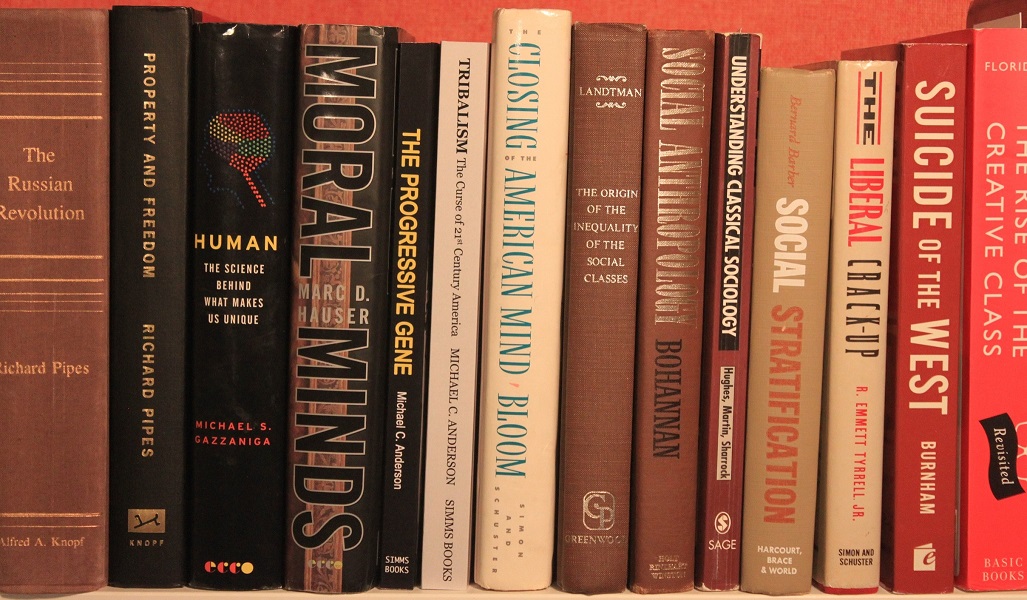Aristotle in
his Politics lays out a thorough discussion of the various forms of
government – monarchy, oligarchy, and democracy. His focus is the character of
men and their ability to govern rather than identifying the best political
system.
In Book 2,
he is harshly critical of Plato and his Republic. Plato envisioned a
communist society where all citizens are alike. To Aristotle this is impossible
because the differentiation of functions is a law of nature. Moreover, the
abolition of property will produce dissention and not harmony. As Aristotle
pointed out, the advantages expected from the communism of property would be
better secured if private property were used in a liberal spirit to relieve the
wants of others. Private property makes men happier and enables them to
cultivate generosity.
In Book 3, Aristotle
tackles the aims of the state and how they are represented in the various
governmental models.
“A constitution is the arrangement of
magistracies in a state, especially of the highest of all. The government is
everywhere sovereign in the state, and the constitution is in fact the
government. For example, in democracies the people are supreme, but in
oligarchies, the few; and, therefore, we say that these two forms of government
also are different: and so in other cases.” No matter what the form of government,
knowledge of its true forms is essential to be able to understand its perversions.
“The true forms of government,
therefore, are those in which the one, or the few, or the many, govern with a
view to the common interest; but governments which rule with a view to
the private interest, whether of the one or of the few, or of the many, are
perversions.”
It’s not a great leap to see how this
statement applies to the United States today, where the Congress and the people
have gravitated to their own parochial interests and away from the common good.
Aristotle goes on (Book 3 Chapter 7) to
describe the perversion of Democracy as the needy. What does he mean by this? When
Democracy becomes extreme and the numerous poor control the state, they will
not be good rulers because they do not have the skill. Better to limit their
function to a deliberative one, such as participation in the courts.
“Our conclusion, then, is that
political society exists for the sake of noble actions, and not of mere
companionship. Hence they who contribute most to such a society have a greater
share in it than those who have the same or a greater freedom or nobility of
birth but are inferior to them in political virtue; or than those who exceed
them in wealth but are surpassed by them in virtue.”
This means that a successful political
system must employ those possessing the greatest skill in its most important
roles. But skill in itself is not enough, because power must be used for good.
“There is also a doubt as to what is to
be the supreme power in the state: Is it the multitude, or the wealthy, or the
good, or the one best man, or a tyrant? Any of these alternatives seems to
involve disagreeable consequences.
If the poor, for example, because they
are more in number, divide among themselves the property of the rich- is not
this unjust? No, by heaven (will be the reply), for the supreme authority
justly willed it. But if this is not injustice, pray what is? Again, when in
the first division all has been taken, and the majority divide anew the
property of the minority, is it not evident, if this goes on, that they will
ruin the state? Yet surely, virtue is not the ruin of those who possess her,
nor is justice destructive of a state; and therefore this law of confiscation
clearly cannot be just. If it were, all the acts of a tyrant must of necessity
be just; for he only coerces other men by superior power, just as the multitude
coerce the rich. But is it just then that the few and the wealthy should be the
rulers? And what if they, in like manner, rob and plunder the people- is this
just? If so, the other case will likewise be just. But there can be no doubt
that all these things are wrong and unjust.”
Doesn’t this property confiscation sound
amazingly similar to the Progressive agenda before us today in the United
States – the leveling of wealth the current administration seeks? We must take
care that social agendas do not break down our society for the wrong reasons. At
the end of the day, human beings have behaviors that cannot be re-programmed
into some kind of utopian construct.

No comments:
Post a Comment